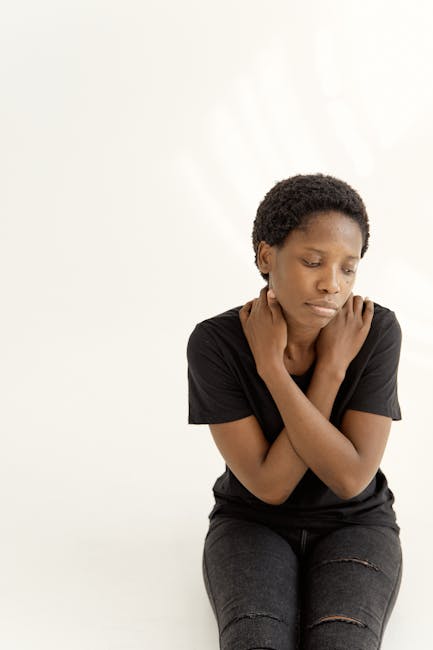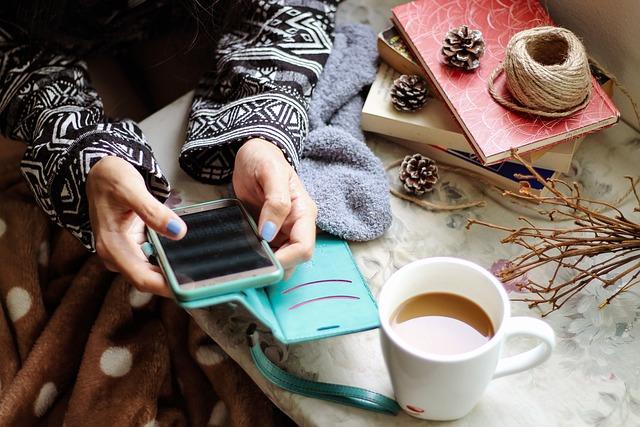Imagine a world where your happiness is determined by the number of likes on your latest selfie, where FOMO (Fear of Missing Out) is a diagnosable condition, and where the only validation you seek comes in the form of retweets and shares. Welcome to the wild, wacky world of social media and its oh-so-subtle impact on our fragile mental health. Grab your virtual seatbelt, folks, because we’re about to embark on a rollercoaster ride through the highs and lows of scrolling, liking, and hashtagging our way through life. So, buckle up and prepare to take a deep dive into the murky waters of likes, filters, and mental breakdowns. You may never look at your Instagram feed the same way again. Let the exploration begin!
Understanding the Relationship Between Social Media and Mental Health
Social media and mental health have a complicated relationship, kind of like that on-again-off-again couple you know that just can’t seem to make it work. Let’s dive into the drama, shall we?
First off, social media can be a real mood booster, like getting that extra cheese on your pizza. It’s a great way to connect with friends, share cute cat videos, and even promote positive mental health messages. Plus, who doesn’t love a good selfie now and then? But just like that extra cheese, too much social media can leave you feeling bloated and guilty. Time spent scrolling through perfectly curated feeds can leave you feeling inadequate and wondering why everyone else’s life seems so damn perfect.
On the flip side, social media can also be a breeding ground for toxic relationships and negative self-talk. It’s like going to a high school reunion and running into that mean girl from homeroom – not fun. Cyberbullying, FOMO, and the constant comparison game can all take a toll on your mental well-being. Who needs that kind of drama in their life?
So, what’s the key to keeping the peace in this tumultuous relationship? Balancing your social media use with plenty of offline activities, like hiking, knitting, or pretending to listen to your grandma’s stories for the millionth time. Remember, you’re in control of your social media experience, not the other way around. So go ahead, post that selfie, but then put down your phone and go pet a puppy. Your mental health will thank you.

self-esteem-and-body-image”>The Influence of Social Media on Self-Esteem and Body Image
Social media is like a funhouse mirror, distorting our perceptions of ourselves with every filtered selfie and perfectly posed picture. It’s a breeding ground for comparison, leaving us feeling like a potato next to Instagram models who have never met a carb in their lives.
Our self-esteem takes a hit every time we scroll through our feeds, seeing everyone’s highlight reel while we’re stuck in our sweatpants, binge-watching Netflix. It’s like being in a constant game of Who Wore It Better, but instead of fashion, it’s a competition of who can Photoshop their waist the tiniest.
Body image issues run rampant on social media, with diet teas and waist trainers being shoved down our throats faster than we can say “photoshop fail.” We’re bombarded with unrealistic standards of beauty, making us believe that perfection is attainable if only we buy this detox tea for the low, low price of our dignity.
But hey, let’s not lose sight of the fact that social media can be a great tool for connecting with others and sharing memes. It’s all about finding that balance between loving ourselves for who we are and knowing when to log off before we fall down the black hole of comparison. Remember, you’re a snack just the way you are, not a low-calorie diet meal replacement shake waiting to happen.

anxiety-and-depression”>The Role of Social Media in Exacerbating Anxiety and Depression
Let’s face it, scrolling through Instagram can sometimes feel like a full-time job. As we mindlessly double-tap our way through perfectly curated feeds, it’s easy to get caught up in the comparison game. Suddenly, our own lives feel inadequate compared to the highlight reel of others. The pressure to present a picture-perfect life online can exacerbate feelings of anxiety and depression.
Not to mention the never-ending cycle of doom-scrolling. One minute you’re watching cute cat videos, and the next you’re knee-deep in a Twitter thread arguing about the latest controversial hot take. It’s no wonder our mental health takes a hit when we’re constantly bombarded with negative news and heated online debates.
**So, what role does social media play in all of this?**
- Social media can create a distorted sense of reality
- It can lead to unhealthy comparison with others
- It can trigger feelings of inadequacy and FOMO (fear of missing out)
At the end of the day, it’s important to remember that social media is just a highlight reel, not the full picture. Taking breaks from the endless scroll and focusing on real, meaningful connections can help combat the negative effects of social media on our mental health. So next time you find yourself feeling down after a social media binge, remember to log off and live your life in the present moment.
Managing Social Media Use for Improved Mental Well-Being
Do you find yourself mindlessly scrolling through social media, comparing yourself to others and feeling down about your own life? It’s time to take control of your social media use for the sake of your mental well-being.
Here are some tips to help you manage your social media consumption and improve your mental health:
- Set Boundaries: Limit the amount of time you spend on social media each day. Set specific times for checking your accounts and stick to them.
- Unfollow Negative Influences: If certain accounts make you feel inadequate or upset, don’t hesitate to unfollow them. Your mental health is more important than following people who bring you down.
- Engage Mindfully: Instead of mindlessly scrolling, engage with posts that bring you joy or make you laugh. Comment on friends’ photos or share positive content to spread good vibes.
Remember, social media is just a highlight reel of people’s lives and not a true representation of reality. Don’t let it dictate how you feel about yourself. Take charge of your social media use and prioritize your mental well-being above all else.

Addressing Cyberbullying and Online Harassment in the Context of Mental Health
It’s time to get real about cyberbullying and online harassment, especially when it comes to mental health. Let’s face it, hiding behind a screen doesn’t make you tough, it just makes you a keyboard warrior. So, before you hit send on that nasty comment, remember that words can hurt just as much as sticks and stones.
Now, I know what you’re thinking: ”But it’s just the internet, what’s the big deal?” Well, let me tell you something, cyberbullying can have serious consequences on someone’s mental well-being. It can lead to anxiety, depression, and even thoughts of self-harm. So, before you type out that mean tweet, think about the impact it could have on someone else’s mental health.
When it comes to addressing cyberbullying, here are a few tips to keep in mind:
- Think before you type: Would you say it to someone’s face? If not, then maybe it’s best to keep it to yourself.
- Report harassment: Don’t be afraid to speak up and report any cyberbullying you see online. It’s important to stand up for yourself and others.
- Support one another: Instead of tearing each other down, let’s build each other up. We’re all in this crazy online world together, so let’s be kind and respectful to one another.
So, next time you’re tempted to spread hate online, remember the impact it can have on someone’s mental health. Let’s create a more positive and supportive online community for everyone.
connection“>The Potential Benefits of Social Media for Mental Health Support and Connection
In today’s world, social media platforms can actually be quite beneficial for mental health support and connection. You might be surprised, but scrolling through your feed can actually provide a much-needed sense of community and connection.
Here are some potential benefits of using social media for mental health:
- Instant access to support groups and like-minded individuals who can offer advice and validation
- Ability to connect with old friends and make new ones, alleviating feelings of loneliness
- Opportunity to share your own struggles and successes, breaking down stigma and creating a supportive environment
So next time you catch yourself mindlessly scrolling, remember that you are not alone. Social media can actually be a powerful tool for finding support, connection, and even some good memes to brighten your day.
FAQs
How does excessive use of social media affect mental health?
Well, imagine being bombarded with pictures of your friends on luxurious vacations while you’re stuck at home binge-watching Netflix. It can make you feel pretty crummy about yourself, right? That’s just the tip of the iceberg when it comes to how social media can mess with your mental health.
Can social media lead to feelings of loneliness and isolation?
Absolutely! Spending hours scrolling through perfectly curated feeds of people living their #bestlife can make you feel like you’re the only one not out there slaying it 24/7. It’s like being the last kid picked for the dodgeball team all over again.
How does the constant comparison on social media impact self-esteem?
Oh, let me count the ways! Seeing influencers with flawless skin, perfect bodies, and Instagram-worthy lives can make you feel like a basic potato in comparison. It’s like trying to compete in a beauty pageant with Beyoncé – not gonna end well.
Can social media addiction lead to anxiety and depression?
100%! Constantly checking for likes, comments, and validation on social media can create a vicious cycle that leaves you feeling anxious and inadequate. It’s like being trapped in a never-ending popularity contest with no way out. Talk about exhausting!
How can we protect our mental health while still using social media?
Step one: Remember that social media is just a highlight reel, not real life. Step two: Limit your time on social media and take breaks when needed. Step three: Cultivate real, meaningful connections offline to balance out the virtual noise. And finally, remember that your mental health is more important than likes or followers – always prioritize yourself, hun!
—
Wrap-Up: Disconnect to Reconnect
As we’ve navigated through the sea of tweets, status updates, and filtered selfies, it’s clear that social media has a profound impact on our mental well-being. But fear not, dear reader! Just remember to hit that logout button every once in a while and indulge in the lost art of face-to-face conversation. Your mental health will thank you, and who knows, you might even discover that there’s more to life than the perfect Instagram post. So go forth, disconnect to reconnect, and remember that likes and retweets are fleeting, but inner peace is eternal.



